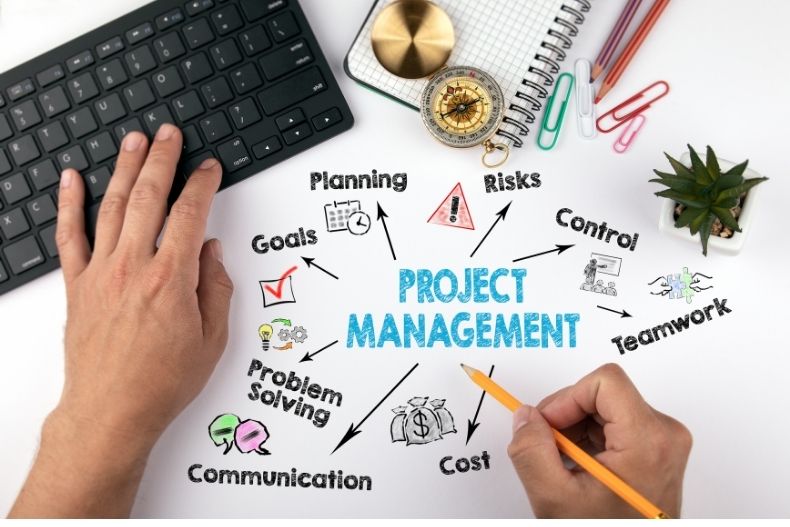Project management is the process of managing, directing and monitoring all required resources that go into the implementation and completion of a project. Construction Project Management or CPM is the process of managing a construction project, from its inception to completion. CPM also involves looking after the project’s scope, cost, time and objectives.
Monitoring is crucial in Construction Project Management because the day by day monitoring and evaluation are what equals final completion on the project day. If day to day activities on the ground match the initially mapped out plan, there is little to worry about for project managers in the longer run.
CPM really begins in its full essence once the entire bidding process and project award is complete. The following checklist is what is to be accounted for in performing Construction Project Management:

Scope
The first step that a Construction Project Management is that the project manager compiles all scope related material for the project. This includes the blueprints, original bidding documents, quotation requests, architectural plans, water work plans, etc. The defined scopes concerning the budget of the project, time duration and requirements should be communicated to all team members at the earliest to ensure no mishap takes place.
Procurement for materials
For this step, the project managers need to ensure that they have a procurement plan in place. A procurement plan includes a time chart that details when and how much of what is required to complete construction smoothly. The procurement plan also defines where would the material be procured from and how long would it take for the material to reach the construction site. This time dictates how early should the procurement process be initiated in order to receive the goods on time.
Budget Planning
This step involves the project manager estimates the costs associated with the project and compares it with the overall budget. It also requires an ad-hoc analysis or worst-case scenario analysis in which the manager must assess how much loss would the company be able to bear. This also includes the amount of working capital needed to be maintained at all times. The manager should also keep track of all ingoing and outgoing transactions at all times.
Risk assessment
The project manager must also perform a risk assessment technique that assesses the amount of risk or uncertainty involved in the project. This also includes a procedural plan for worst-case scenarios or for high-risk situations. This essentially helps managers justify any resultant insurance claims in the future.
Communication
The project manager should ensure that a proper communication plan and channel exists and is in place in the project team. Rather than hearing things from a grapevine, all team members must be informed with the necessary information through a formal channel to avoid any miscommunication and resultant delays. For this purpose, there needs to be reporting processes in place in which each individual knows who their senior concerned individual is and reports to them. There must also be a grievance redressal procedure in place and a complaint cell.
Team and leadership
The importance of team building and leadership in a team cannot be replaced by any other requirement. Especially in a field like construction, if managers need things to get done on schedule, they need to make sure that their employees are happy with them. Furthermore, managers need to take care of their employees by whatever means they can and ought to aid them to personal development. Rather than dictating, managers need to act as a part of the team and participate and help in daily tasks as much as they can manage.